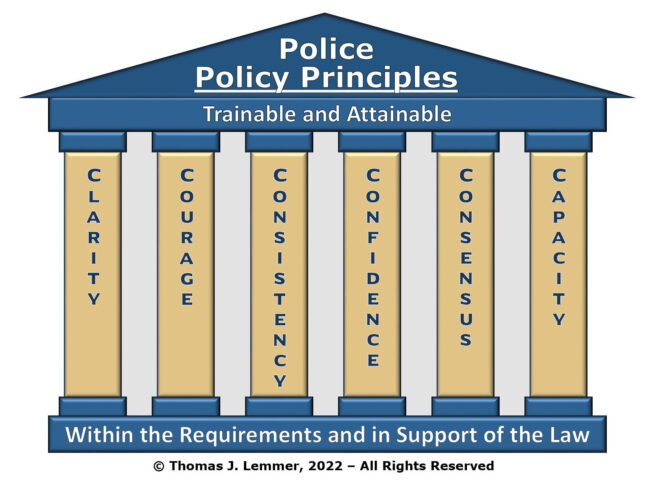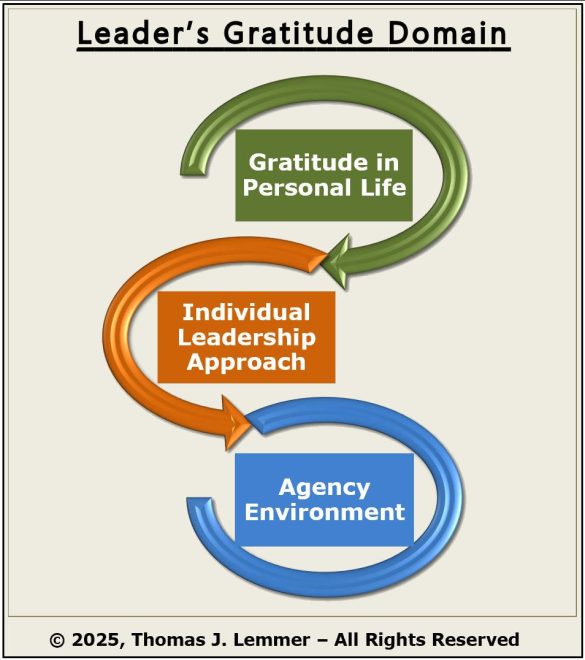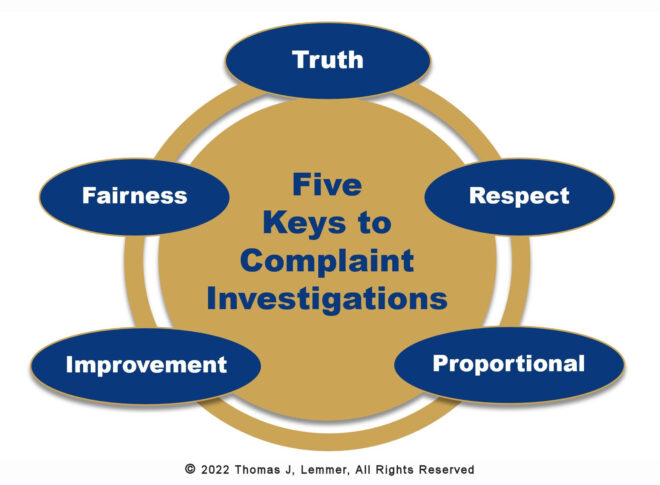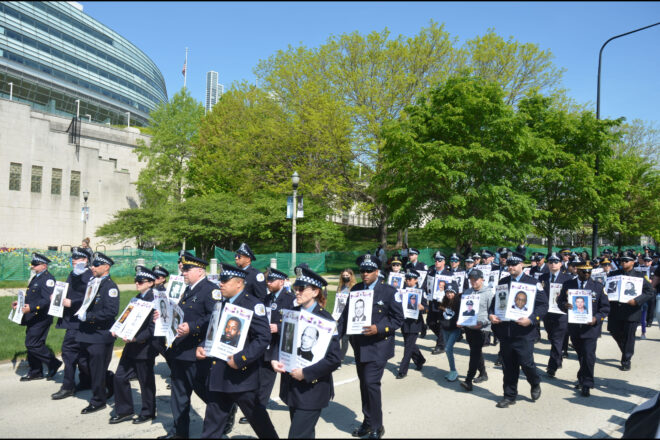Secure 1776 – Public Safety Professional Resource, LLC provides direct training, consulting, research, and analytical services. Core areas of expertise include community policing, juvenile crime, gangs, violence, patrol operations, police and public safety policy development, internal investigations, supervisory engagement, and management accountability. Comprehensive service options are in continual development and are available now.
Services Description Index
The Eight Levels of Supervisory Engagement
This supervisory engagement model is essential training for police executives and managers who supervise law enforcement supervisors. A fundamental truth of organizations, including law enforcement agencies, is that underperforming and problem employees exist. When the underperforming or problem employee is a supervisor, the need for the organization to respond is elevated.
Effectively addressing problematic and deficient supervisors is advanced through this executive-level training. There are multiple session options. 90-minute and 2-1/2 hour in-person versions of this course have been presented at statewide training conferences hosted by the Illinois Association of Chiefs of Police and the Illinois Sheriffs’ Association. The Illinois Law Enforcement Training and Standards Board – Executive Institute (ILETSB-EI) previously hosted this training on its Online Learning Network. Paired with our training on measuring police performance, the state training board also hosts this training within our full-day seminar, “Engagement that Meets the Mission.”
Additionally, this training can be paired with our accountability course, “Why and How to Measure Police Performance” course. The combination is a powerful performance management approach. The ILETSB-EI includes this combination, as part of its Police Executive Role in the 21st Century (PER21C) series. PER21C is a highly-regarded 100-hour comprehensive leadership training program.
Half-day and full-day seminar versions of this course are an option nationally for law enforcement agencies and associations. Learn more now about the “Eight Levels of Supervisory Engagement” by going to our course overview page.
Return to the Services Index.
Engagement that Meets the Mission
This full-day seminar is an advanced training option for police executives and managers who supervise law enforcement supervisors. The focus and level of engagement of an organization’s members are key variables in separating highly-effective agencies from failing ones. In any department with more than one member, no police executive can know all that goes on, at all times, within their organization. Even in smaller agencies, having one or two top-performing members is not enough for the organization overall to meet its mission.
Two interrelated engagement factors are key in establishing a highly-effective organization. First, fostering excellence among the agency’s supervisors. Second, establishing internal assessment approaches that continually measure and build the organization’s core performance capabilities. The Illinois Law Enforcement Training and Standards Board – Executive Institute (ILETSB-EI) hosts this training periodically for Illinois law enforcement executives and command personnel. Secure 1776 can also bring this training directly to your agency or association.
Learn more now about “Engagement that Meets the Mission” by going to our course overview page. Additionally, consulting options that help your agency enhance supervisory engagement and performance assessment efforts can be paired with this executive training and are available.
Return to the Services Index.
Why and How to Measure Police Performance
This executive training course provides guidance on the principles and importance of police management accountability processes. There are two key reasons for an organization to measure its performance. First, standards provide the pathway to excellence. Agency performance is a composite of the performance levels of all of its members. Standards are key to achieving excellence. Only through measuring can an agency know how well it is meeting its mission. Second, police executives can be sure that someone else will be measuring. This is particularly true when their agency is being viewed as not “measuring up.”
Half-day and full-day seminar versions of this course have been developed in collaboration with the Illinois Law Enforcement Training and Standards Board – Executive Institute (ILETSB-EI). The full-day course is presented as part of the executive institute’s comprehensive 100-hour “Police Executive Role in the 21st Century” (PER21C) program.
Customized versions of this course are available an option for law enforcement agencies and associations. We can also directly assist agencies in developing a scalable performance assessment approach designed to meet their needs. Learn more now about measuring police performance by going to our course overview page.
Return to the Services Index.
Leadership is an All-Levels Responsibility
This is an informative training course for all law enforcement professionals. Each police officer, even those not holding a formal rank, has the sworn duty to lead by example on two key levels. First, within the community that the officer serves. Second, among the other members of the officer’s unit, department, and profession. The best formal leaders understand that fundamentally, leadership is about persuasion. These leaders, draw upon their own informal (or relational) leadership abilities, and they do not rely upon the power of their rank alone to get others to act. They inspire. The best formal leaders seek to build a highly-effective organization, which is comprised of highly-effective individuals, performing at all-levels within the group.
This course can be presented in one-hour and 90-minute versions, or paired with our course on “tragedy-free policing” in a two-hour conference presentation or a half-day seminar option. Learn more now about “all levels” leadership by going to our course overview page.
Return to the Services Index.
Countering a Tragedy-Free Policing, Or Else Standard
This timely training course is recommended for all public safety professionals, law enforcement personnel, civic leaders, and elected officials relative to the need for approaches that strengthen the police-community bond through a fact-based understanding of the complexities of policing in America.
This course builds from the defining “tragedy-free” policing article written by our founder, Thomas Lemmer. Published in the June 2021 issue of the FOP Journal by the National Fraternal Order of Police, “Tragedy-Free Policing or Else: The Need for Critical Thinking,” is a highly-recommended resource. In the article, and this training course, Lemmer explains how expectations that the police will never be involved in events with tragic outcomes are both unrealistic and damaging. Such undermine the police-community relationship that is vital to public safety.
Among the places this course has been presented was the 2021 Breaching the Barricade (BTB) Law Enforcement Conference. For a glimpse at this training, see our course promotional video prepared for that conference. Learn even more now about the damage to the policing profession and the path forward in rebuilding community support by going to our course overview page.
This course is available for law enforcement agencies and associations upon request. This course can be presented in one-hour and 90-minute versions, or paired with our course on “all-levels” leadership in a two-hour conference presentation or a half-day seminar option.
Return to the Services Index.
So You Ask Yourself: Why Me? Why Now?
Without question, America is in the midst of a public safety crisis. Rising violence and lawlessness have been most visible in America’s largest cities. However, concerning increases in crime have also been seen in suburban and rural areas. The nation is sharply divided politically, and public service has often been the focus of far more criticism than gratitude. So, in this challenging environment, it is not surprising that many police officers, deputy sheriffs, state troopers and others within the law enforcement profession – from frontline officers to agency chiefs – have asked themselves two questions. Why me? Why now?
For those within the profession who are questioning their place in this challenging time, this training provides an opportunity to refocus and recharge. The one-hour presentation was created by Thomas Lemmer as an officer wellness, emotional strength development, and mission support resource. Participants are advised that the presentation is emotionally intense.
This course is available for law enforcement agencies and associations upon request. The one-hour version of this presentation can be effectively utilized in agency staff meeting, retreat, and management development settings.
Pairing this Content for More Impact
This training can also be paired with other Secure 1776 courses to create a customized half or full-day of instruction. In the seminar versions, pairing this course with a pre-training survey of the agency’s members provides powerful insights and enhanced motivational training session discussions. In particular, this course serves as an excellent training companion to our countering demands for tragedy-free policing, all-levels leadership, supervisory engagement, gratitude in leadership, and other course options. To learn more about this resource focused on meeting the current challenging times for the profession, go to our course overview page.
Return to the Services Index.
Guidance in Police Policy Development
Bad policies can destroy officer morale, misdirect resources, complicate procedures, create inefficiencies, and impede effectiveness. Bad policies can cost millions in civil damages, litigation defense, and remediation efforts. In policing, officer safety should always be a priority concern, and bad policies can, and do, place individual members at risk. Bad policies can cost lives. Bad policies can also undermine the very public safety mission of a police department.
Among the most important leadership responsibilities for police executives and command personnel are those that center on the policy development process. From his extensive policy and management accountability background, Thomas Lemmer has identified three core Police Policy Principles.
First, The policies of a law enforcement agency must rest upon a foundation that is both consistent with and supports the law. Second, their policies must be trainable and focused on setting the highest attainable standards. Third, police policies must embrace six core pillars: Clarity, Courage, Consistency, Confidence, Consensus and Capacity. For more information, read his detailed training insight article entitled, “The Essential Police Policy Principles.”
Consulting services building on these key principles, including comprehensive agency policy reviews and policy development process guidance, are available. Complete our contact form so we can discuss your agency’s needs.
Return to the Services Index.
Gratitude Leading Leadership
Under the Gratitude Leading Leadership Model, identified by Thomas Lemmer, policing executives and supervisors are encouraged to embrace the importance of gratitude. In all but a one-person department, all police chiefs and sheriffs (and their agency’s supervisors) must rely on the work of others to fully meet their agency’s mission. This reality is inherently understood, which raises a key question. Overall, are our law enforcement agencies ones that their members would describe as being places where gratitude is a priority?
Wellness and positive attitudes about the work and mission of an agency are fostered when its members believe that their efforts are known and appreciated. Hence, expressions of gratitude are an important aspect of leadership.
A leader’s capacity and effectiveness in understanding and harnessing the power of gratitude exists within the Leader’s Gratitude Domain. This domain consists of: (1) the leader’s personal life; (2) the leader’s individual leadership approach; and (3) the overall agency (group/team/unit) environment in which the leader has influence.
The introductory session of this model was conducted at the 2025 annual training conference of the Illinois Association of Chiefs of Police. Participants at the conference expressed their own gratitude for this powerful leadership presentation.
Bring Gratitude to Your Agency
This leadership course pairs well with our supervisory engagement and other leadership training, in both half and full-day seminars. Additionally, have your asked your members whether they believe your agency is one with leaders that embrace and express gratitude? Perhaps you should pair this training with our agency survey services.
Direct client training and consulting service options of this important leadership development approach are available. Complete our contact form to begin the discussion of your agency’s needs.
Return to the Services Index.
Guidance in Handling Police Misconduct Complaints
Addressing complaints of police misconduct are a challenging core responsibility for police leaders. It is essential for the process to maintain professional standards, identify false accusations, enhance officer performance, and when allegations are sustained, differentiate between errors and true misconduct.
See the training insight on this topic provided by Thomas Lemmer. There his Five Keys to Police Misconduct Complaint Investigations are introduced. They are: truth, fairness, respect, improvement, and proportionality. These elements are essential to advancing the legitimacy within the process. A legitimacy that simultaneously meets the needs of the community, department, and the involved officers.
Regarding internal investigations, direct client investigative process consulting services are available. Complete our contact form to discuss your agency’s needs.
Return to the Services Index.
Survey Your Agency’s Members
The members of your agency have key feedback that its police executives need to hear. Your members know a lot about your agency, their roles, the issues that impact their ability to perform their duties. Has your agency asked them? Was it in a way that they felt comfortable telling you what they actually believe? Unfortunately, the rank structure in policing can complicate the flow of information up. However, a properly conducted, staff survey can break through those communication issues.
Our survey analysis reporting can standalone as a valuable tool. However, under our Survey and Train Plan, our surveys can also be a game changer in bringing core training concepts, involving staff concerns, accountability, supervision, management, and leadership, to life in a way that directly relates to your agency. We can conduct a participant survey in the weeks before your agency receives one of our cutting-edge training sessions. Then using that response data, session exercises and discussions can be customized based upon the survey findings.
To learn more about this important resource opportunity for your agency, go to our survey services page. To jump right into a sample survey, click here.
Consulting service options for this informative leadership process are available. Complete our contact form to begin the discussion of your agency’s needs.
Return to the Services Index.
Custom Presentations and Consulting Projects
Custom presentations and consulting projects can be prepared on the topics of community policing, juvenile crime, gangs, violence, patrol operations, police and public safety policy development, internal investigations, supervisory engagement, and management accountability.
We can perform document reviews and conduct research on key areas of concern. We can assemble a team of professionals to help you meet your needs. Site visits can help review procedures and conduct performance and impact assessments. We can survey your members, and we can provide policy, operational, supervisory engagement, and management accountability recommendations that foster the development of a highly-effective organization.
Customized consulting service options are available. Complete our contact form to begin the discussion of your agency’s needs.
Return to the Services Index.
Is Your Agency in Need of Assistance?

Do you have a professional training or consulting service need you would like Secure 1776 to explore? Let us know.
Beyond the above listed training and consulting options, we are available to discuss customized service needs. We are here to help.
To contact us regarding our public safety professional services, please fill out our contact form or email us at admin@secure1776.us.

(c) 2022-2026 Secure1776.us – All rights reserved.




